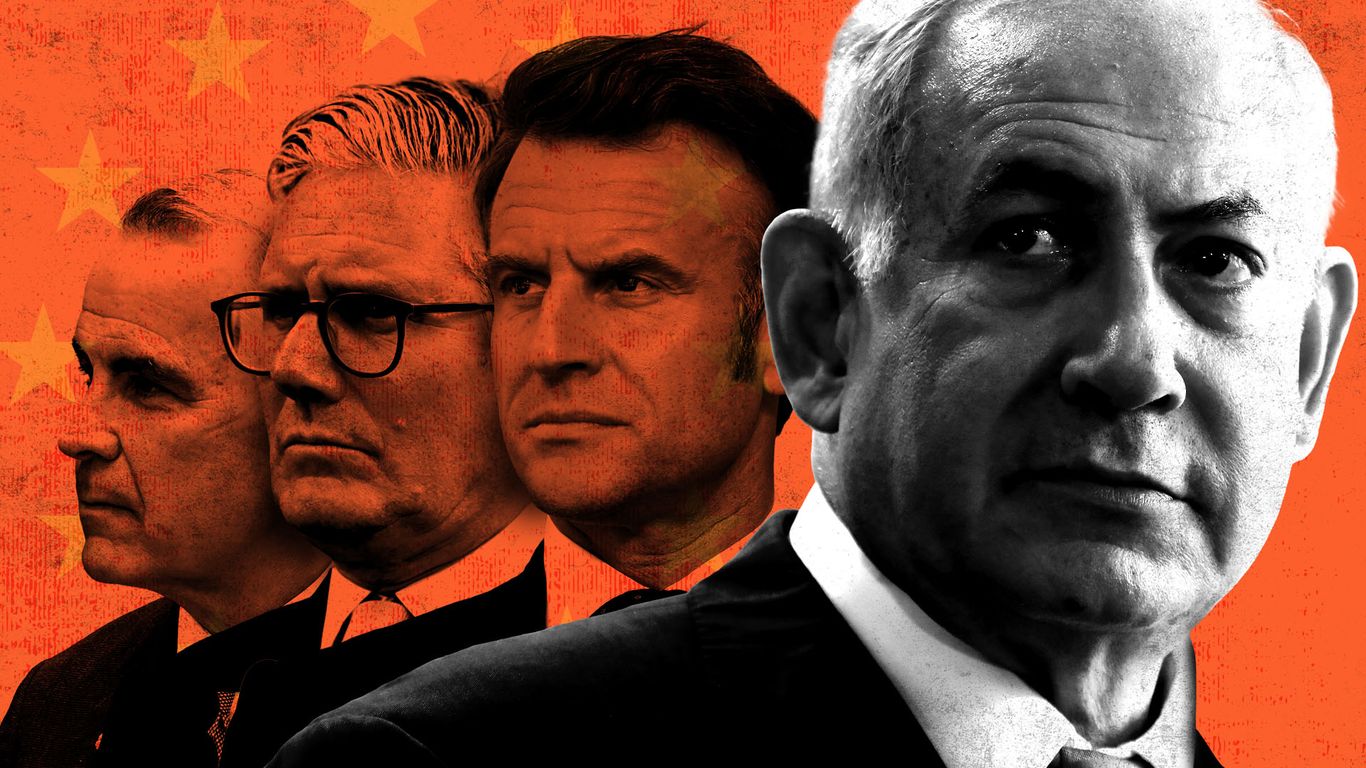
"The intrigue: Netanyahu, who vehemently opposes a Palestinian state, will visit Trump in Washington after the assembly to seek his blessing for a strong response. The most extreme option under discussion is the annexation of most or all of the occupied West Bank. Driving the news: On Sunday, the U.K., Canada and Australia jointly announced recognition of Palestine. They were joined later by Portugal, bringing the total number of countries now recognizing Palestine over 150."
"The big picture: During his first term, Trump supported a two-state solution and even presented a peace plan that included a Palestinian state. But after the Oct. 7 attacks, he said "the situation has changed." His second administration has taken arguably the most anti-Palestinian stance in U.S. history. Trump has used the very word "Palestinian" as an insult. Trump hasn't loudly opposed the wave of recognitions himself, leaving that fight to Secretary of State Marco Rubio."
Netanyahu, who vehemently opposes a Palestinian state, will visit Trump in Washington after the assembly to seek his blessing for a strong response. The most extreme option under discussion is the annexation of most or all of the occupied West Bank. The U.K., Canada, Australia and Portugal have recognized Palestine, bringing total recognitions to over 150 countries; France and at least five more countries are expected to announce recognition as well. During his first term Trump supported a two-state solution but after Oct. 7 said "the situation has changed," and his second administration has adopted a strongly anti-Palestinian stance. Secretary of State Marco Rubio has instructed U.S. diplomats to lobby countries against recognition and participation in the French-Saudi conference, but those efforts have met almost no success.
Read at Axios
Unable to calculate read time
Collection
[
|
...
]